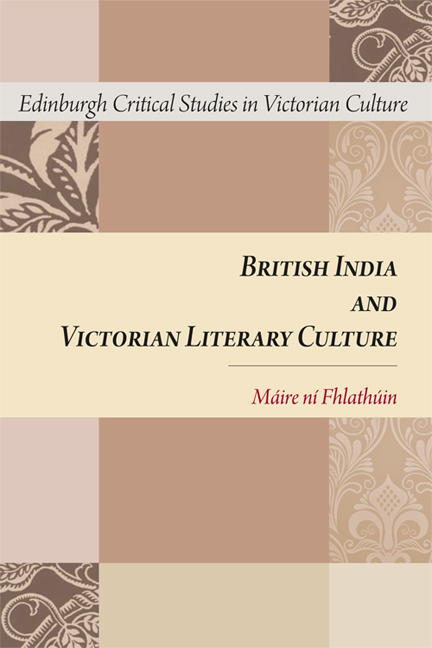1 - The Literary Marketplace of British India: 1780–1844
from Part I - Experiences of India
Published online by Cambridge University Press: 05 August 2016
Summary
From small beginnings in the late eighteenth century, the periodical press became the powerhouse of literature in British India during the first half of the nineteenth century. Newspapers and literary titles were set up, in many cases, to serve as a conduit for the distribution of the news and culture of ‘home’ across India, casting the colonial readers of these texts in a peripheral relation to the political and cultural centre of the British metropolis. The periodicals also provided a forum in which the British community in India could write for (and often about) itself, thus enabling the development of a sense of local and colonial identity, related to but also set apart from the identity of the British at ‘home’.
One of the most important aspects of the periodical press is its role in the formation of the ‘imagined community’ of Anglo- India, in the process described by Benedict Anderson whereby texts create and maintain the connections between individuals that overlay individual consciousness with collective identities. Bart Moore- Gilbert argues for the recognition of British India as a community with a sense of its own cultural identity distinct from that of Britain, a difference marked by the evolution during the nineteenth century of a distinctively Anglo- Indian dialect and literary tradition. Simply in terms of the amount of material involved, the periodicals constitute a significant part of that literary tradition. In the period covered by this chapter, texts published in periodicals assume a particular importance in comparison with the handful of notable volumes of poetry and novels directly or indirectly produced from British India. There is an argument to be made for travel writing as the most important and representative form of ‘national literature’ for Anglo- India, certainly in the first half of the nineteenth century, but travel writing is by its nature usually published from outside, looking back, while periodical contributions are typically produced by writers still living and working in India, as part of the community created by their texts and shared by their readers. B. S. Cohn describes the society of British officials in India as ‘a fossil culture, cut off from close contact with home, recruited from several groups in English middle- and upperclass society, and with diverse educations’.
- Type
- Chapter
- Information
- British India and Victorian Literary Culture , pp. 9 - 23Publisher: Edinburgh University PressPrint publication year: 2015



